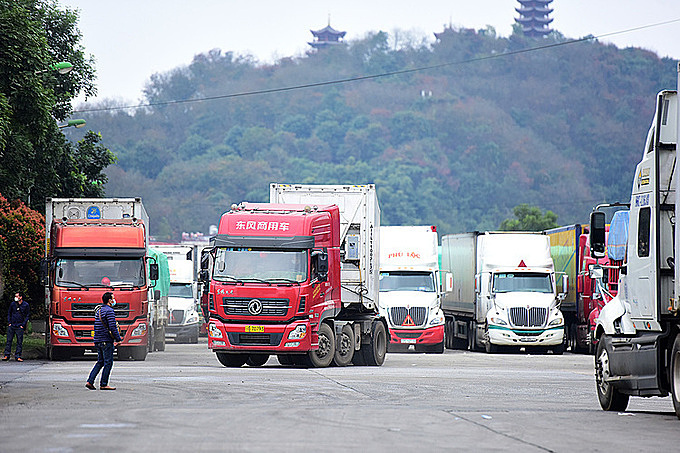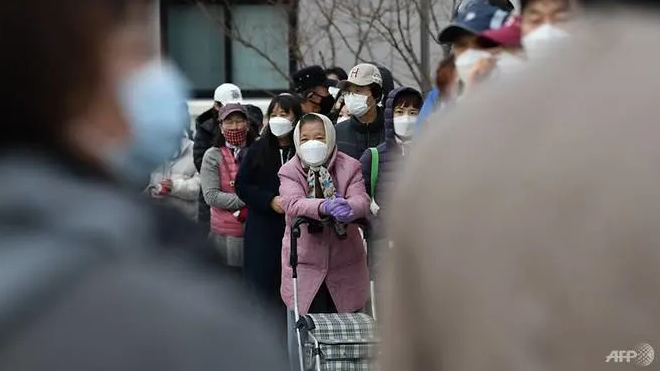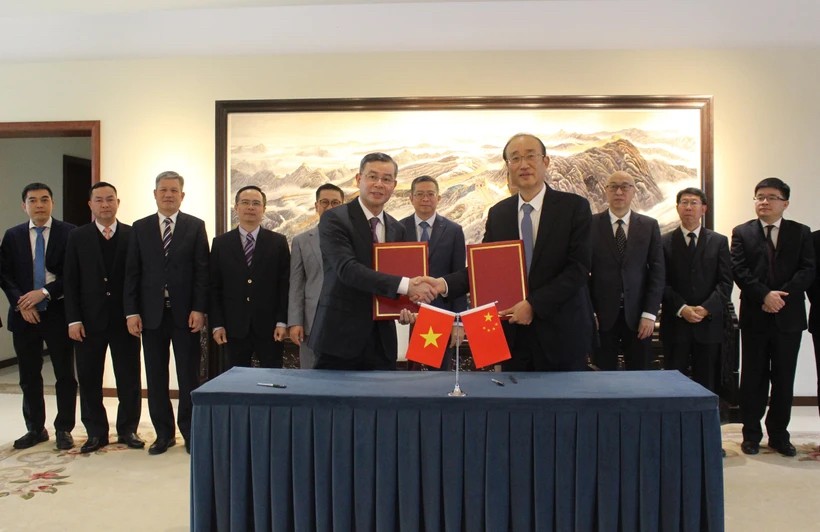Businesses suffer as COVID-19 spreads outside China
| COVID-19 suspects drop to 75 in Vietnam | |
| Chinese COVID-19 carrier faces jail in Singapore for lying about whereabouts | |
| How coronavirus is changing global habits, lifestyles |
 |
| Containers at Kim Thanh Border Gate No.2 in Northen Lao Cai Province (Photo: VnExpress/ Giang Huy) |
Duy Tan Plastics had assessed that the novel coronavirus (COVID-19) epidemic would not affect it too much when it broke out in China, but is now facing difficulties after it spread to South Korea, its main source of raw materials.
"The disease has been spreading fast in South Korea in the past few days, and so we are having to come up with new response scenarios," Trinh Thi Mai Hanh, the company’s media representative, said. As of Monday South Korea had 3,736 confirmed cases and 18 deaths.
The epidemic has also reached a state where because plastics are not a basic necessity, consumers are willing to cut spending on it.
"Last year we were hit by the anti-plastic trend, and this year by COVID-19," Hanh said.
A spokesperson for Thai Binh JSC, which manufactures and exports diapers and sanitary products and has a factory in Cuba, said her company has also been affected though it does not source materials directly from China.
Its Cuban suppliers source some materials from China, and so production has slowed down, she said.
Many trade promotion events have been hit by the outbreak. "Our company planned to attend two international trade fairs in March and April, but both have been postponed because many businesses are unable to attend," she said.
Minh Long I JSC, which manufactures and exports ceramics, said its latest exhibition from February 7-11, in Frankfurt, Germany, was a failure since attendance fell by 60 percent from last year.
Most of Minh Long’s biggest deals have been struck at this annual event, Ly Huy Sang, deputy director of the company, said.
The number of customers visiting the company’s showrooms has declined by 30 percent since the outbreak began, he said.
While the ceramics industry is not directly affected, restaurants and hotels that are losing customers to the outbreak would spend less on ceramics, he pointed out.
The epidemic has hit all of Vietnam’s three biggest businesses partners, China, South Korea and Japan, which makes it difficult for businesses in this country, economist Le Dang Doanh said. "The textile and garment industry is one of the industries suffering the most from the epidemic. If things continue to be as they are, by the end of March textile producers will run out of raw materials."
At a press conference on February 26, the Ministry of Industry and Trade (MoIT) had said that textile, footwear and electronics firms are running low on feedstock sourced from China, and might have to suspend production by March-end if the epidemic continues unabated.
The automobile industry, which imports over 70 percent of components from China, would start suffering shortages by the end of the first quarter, it said.
Opportunity in crisis
According to Vu Kim Hanh, president of the Business Association of High-Quality Vietnamese Products, said, on the bright side, COVID-19 is a wake-up call forcing many businesses to look at themselves, and come up with proactive solutions to deal with the situation.
"Businesses are being pushed to the edge, and are in survival mode. They are reviewing how they manage human resources, cash flows and the market in general."
Doanh said businesses need to persify and not put all their eggs in one basket. Textiles firms, in particular, need to consider importing inputs from markets other than mainland China such as Taiwan or South Korea.
Vietnamese businesses had traditionally been too dependent on Chinese supplies, when Chinese businesses have been the most easy-going and flexible in partnerships, Doanh said.
But COVID-19 is an opportunity to decrease dependence on China, and look to other markets like the EU, especially with the EU-Vietnam Free Trade Agreement (EVFTA) expected to come into effect later this year, he added.
In a government meeting last week, Truong Thanh Hoai, head of the MoIT’s Industry Department, proposed that banks should consider restructuring loans and extending payback periods for Covid-19 affected businesses, while the government should look at tax exemptions, extensions or VAT refunds during this "difficult period".
Many businesses are also calling for a bailout. "We hope the government will soon roll out a rescue package, with many businesses upon the brink of insolvency," said a representative of Duy Tan Plastics.
Vietnam should also be adjusting its growth targets, which if kept are unrealistic given the current developments of COVID-19, said Le Dang Doanh.
"If adjustments are made early, Vietnam could avoid overspending and instead release stimulus packages to help businesses that have been damaged by the epidemic," he added.
The Ministry of Planning and Investment estimates that almost 900 companies in the country have stopped operating or scaled down their business considerably because of the coronavirus outbreak.
Vietnam’s GDP growth could fall to a 7-year low of 5.96 percent this year, the ministry said in its latest report on the epidemic.
The COVID-19 epidemic broke out in Wuhan, China, in December and has spread to 67 countries and territories, infecting over 89,000 and killing 3,053 people as of Monday./.










